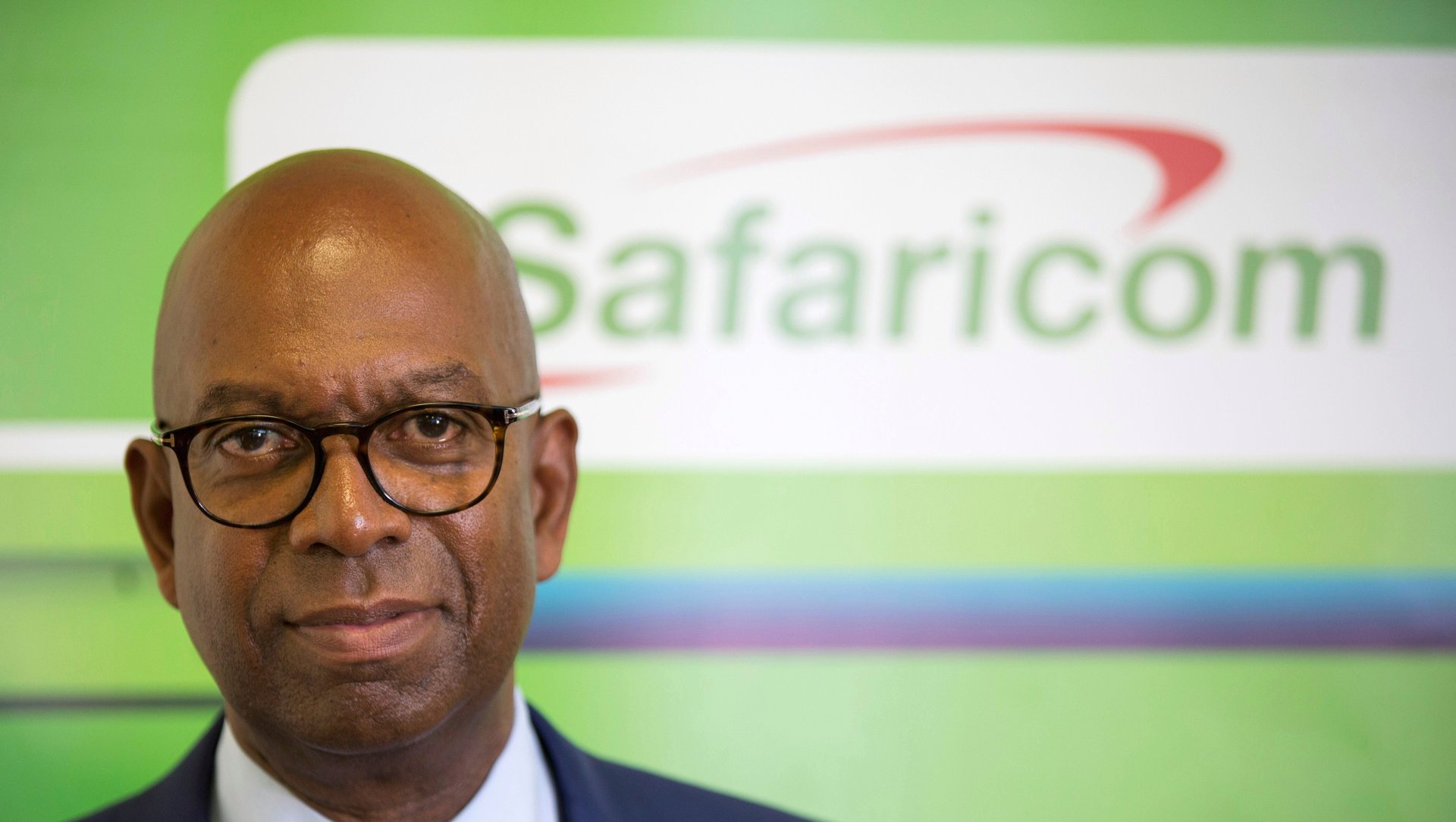Safaricom’s CEO is back from nine-month sick leave and fighting to keep its market dominance
After a nine-month absence, the head of Kenya’s biggest telecommunications company is back to work.


After a nine-month absence, the head of Kenya’s biggest telecommunications company is back to work.
Bob Collymore, the CEO of Safaricom, resumed his duties after leaving for the UK last October to receive treatment for an undisclosed illness. In his first public event, Collymore appeared in front of lawmakers who are looking into the legislative and regulatory gaps undermining competition in Kenya’s telecommunications sector. Safaricom controls 67% of Kenya’s mobile subscription market and has more than 23.6 million active users of its mobile money service M-Pesa.
Collymore defended the operators’ dominance in the market, championed its commitment to innovation, and decried the regulatory proposals aimed at allowing its competitors to access its transmission and mobile money networks. Quoting from recommendations in a report from the UK-based independent consultant Analysys Mason, Collymore said the Communications Authority wanted to use interventions mentioned in the study to “punish” Safaricom.
In leaked findings last year, AM had recommended that authorities break up Safaricom’s market dominance by spinning off M-Pesa. But the firm changed its mind in a new report this year, noting without much explanation that those measures were “disproportionate” and choosing to remain “silent on what further remedies the CA might consider.”
Collymore especially decried draft proposals that Safaricom should share its innovations and tower networks with competitors Bharti’s Airtel Kenya and Telkom Kenya, introduce the same fee structure for cross-platform money transfers before full-on interoperability plans take hold, besides suggestions that Safaricom’s loyalty schemes and promotions be replicable by other telcos. Safaricom has been pushing against a recently proposed tax increase on mobile money service to increase government revenue.
“This is essentially creating an artificial competitive landscape that rewards Safaricom’s competitors and disadvantages Safaricom’s customers,” Collymore said.
Despite his absence, Safaricom’s profits rose last year, growing 14.3% after-tax earnings in the year ending March to 55.3 billion shillings ($550 million). During the profit announcement in May, Collymore had told shareholders he was waiting on medical clearance from doctors and would be back to lead the company. In his absence, there were reports that M-Pesa was looking to enter Ethiopia, a lucrative, over 100-million people market that is slowly opening up to private investment.